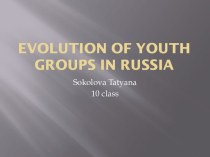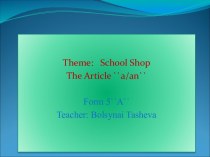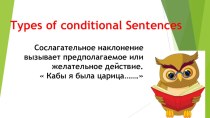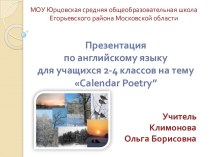- Главная
- Разное
- Бизнес и предпринимательство
- Образование
- Развлечения
- Государство
- Спорт
- Графика
- Культурология
- Еда и кулинария
- Лингвистика
- Религиоведение
- Черчение
- Физкультура
- ИЗО
- Психология
- Социология
- Английский язык
- Астрономия
- Алгебра
- Биология
- География
- Геометрия
- Детские презентации
- Информатика
- История
- Литература
- Маркетинг
- Математика
- Медицина
- Менеджмент
- Музыка
- МХК
- Немецкий язык
- ОБЖ
- Обществознание
- Окружающий мир
- Педагогика
- Русский язык
- Технология
- Физика
- Философия
- Химия
- Шаблоны, картинки для презентаций
- Экология
- Экономика
- Юриспруденция
Что такое findslide.org?
FindSlide.org - это сайт презентаций, докладов, шаблонов в формате PowerPoint.
Обратная связь
Email: Нажмите что бы посмотреть
Презентация на тему Assimilation of borrowed words in English
Содержание
- 2. PLAN
- 3. INTRODUCTIONThe “guests from another language,” or borrowed
- 4. Chapter I. Borrowed words and their properties
- 5. 1.1 Origin of words in EnglishEtymologically the
- 6. 1.2 The classification of borrowed wordsAccording to
- 7. Chapter II. The problem of assimilation of borrowed words
- 8. 2.1 Phonetic assimilation of borrowed wordsSome French
- 9. 2.2 Grammatical assimilation of borrowed wordsIf a
- 10. 2.4 The degrees of assimilation
- 11. CONCLUSIONOral borrowings due to personal contacts are
- 12. B I B L I O G
- 13. Скачать презентацию
- 14. Похожие презентации
PLAN
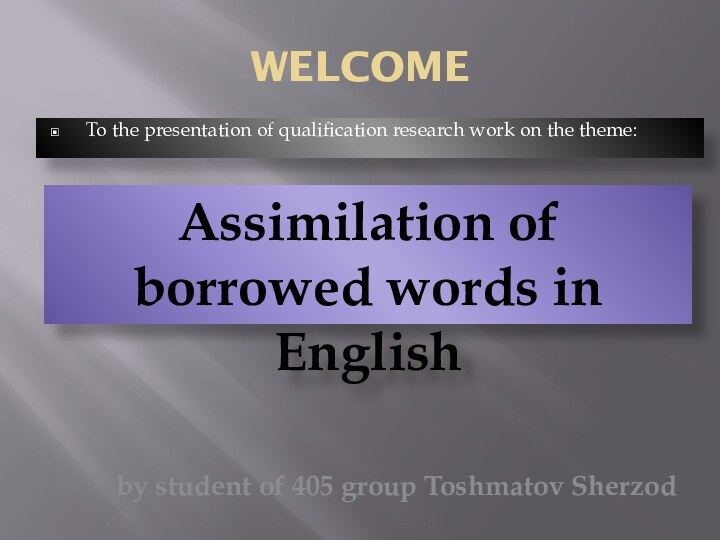

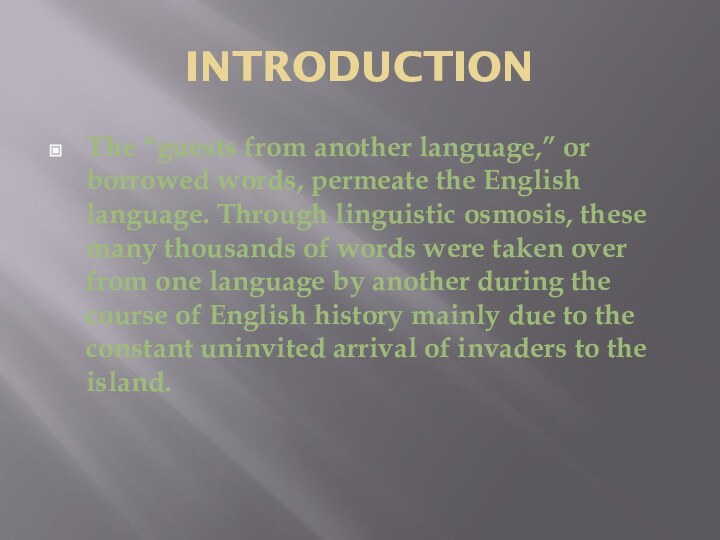

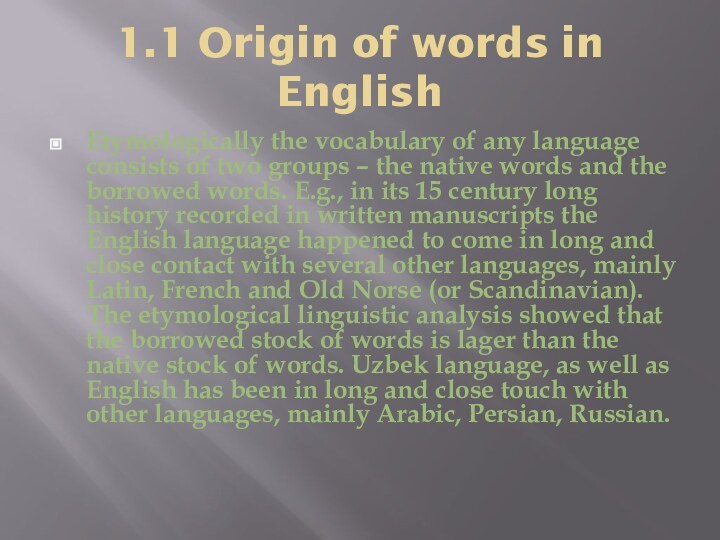

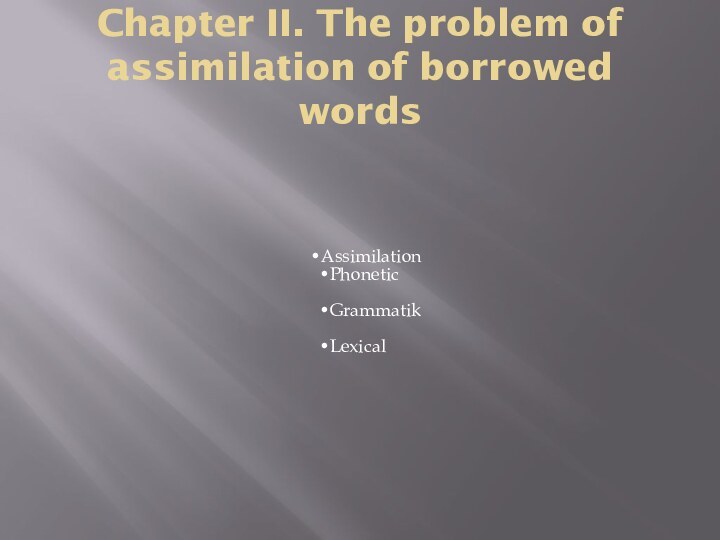
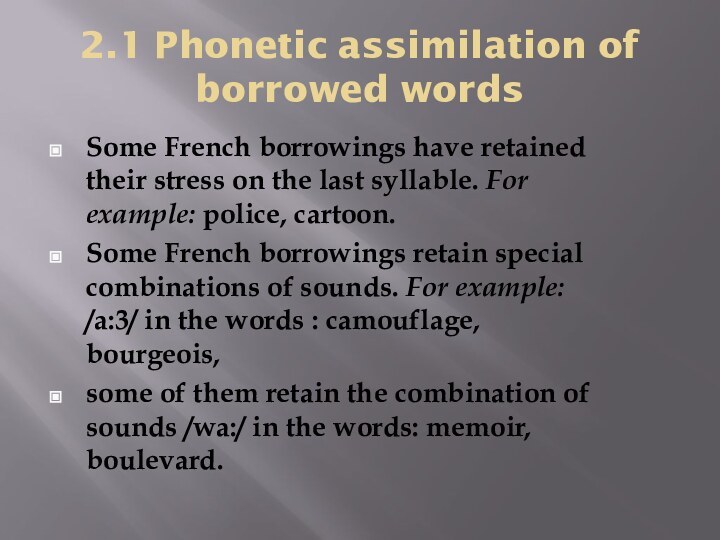
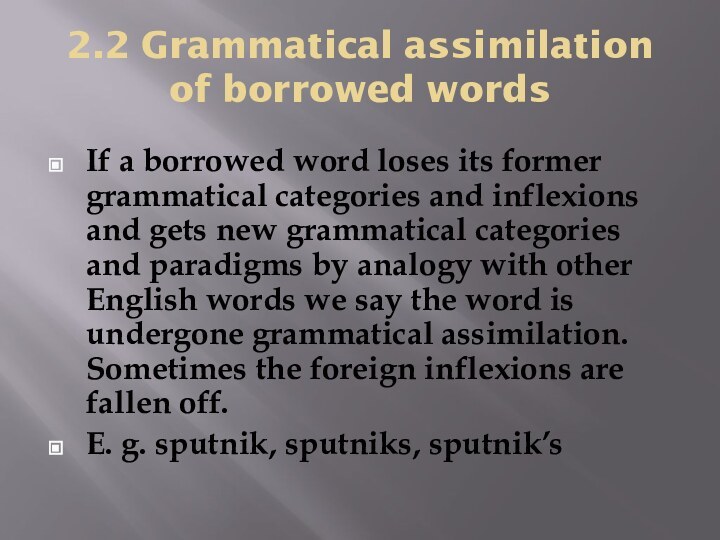
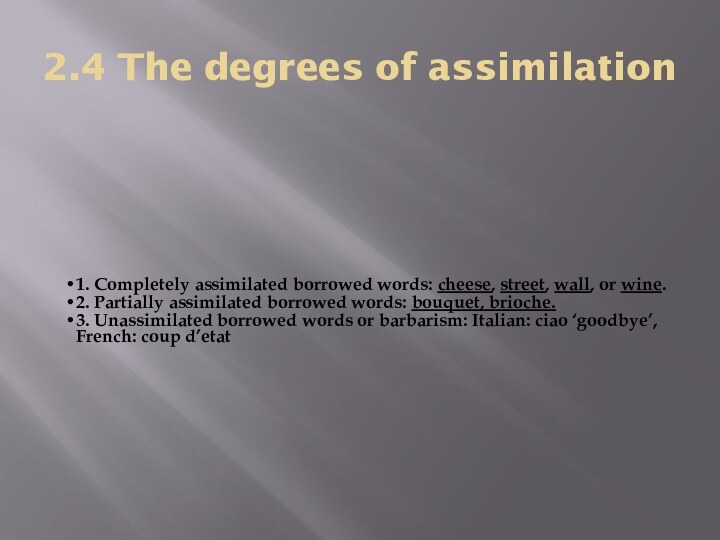



Слайд 5
1.1 Origin of words in English
Etymologically the vocabulary
of any language consists of two groups – the
native words and the borrowed words. E.g., in its 15 century long history recorded in written manuscripts the English language happened to come in long and close contact with several other languages, mainly Latin, French and Old Norse (or Scandinavian). The etymological linguistic analysis showed that the borrowed stock of words is lager than the native stock of words. Uzbek language, as well as English has been in long and close touch with other languages, mainly Arabic, Persian, Russian.
Слайд 6
1.2 The classification of borrowed words
According to the
nature of the borrowing borrowed words may be:
Слайд 8
2.1 Phonetic assimilation of borrowed words
Some French borrowings
have retained their stress on the last syllable. For
example: police, cartoon.Some French borrowings retain special combinations of sounds. For example: /a:3/ in the words : camouflage, bourgeois,
some of them retain the combination of sounds /wa:/ in the words: memoir, boulevard.
Слайд 9
2.2 Grammatical assimilation of borrowed words
If a borrowed
word loses its former grammatical categories and inflexions and
gets new grammatical categories and paradigms by analogy with other English words we say the word is undergone grammatical assimilation. Sometimes the foreign inflexions are fallen off.E. g. sputnik, sputniks, sputnik’s
Слайд 11
CONCLUSION
Oral borrowings due to personal contacts are assimilated
more completely and more rapidly than literary borrowings, i.
e. borrowings through written speech.In the end of my qualification research work I can say I have learned many kind of borrowed words from which they were borrowed. And I have enlarged my knowledge.
Слайд 12 B I B L I O G R
A P H Y
Ginsburg R.S. et al. A Course in
Modern English Lexicology. M., 1979 pp. 72–82.2. Buranov J., Muminov.O. Readings on Modern English Lexicology T. O’qituvchi. 1985, pp. 34–47.
3. Arnold I.V. The English Word. M. High School, 1986, pp. 143–149.
4. O. Jespersen. Linguistics. London, 1983, pp. 395–412.
5. Jespersen, Otto. Growth and Structure of the English Language. Oxford, 1982, pp. 246–249.
5. The Concise Oxford Dictionary of Current English. Oxford 1964. pp. 147, 167, V.D. Arakin English Russian Dictionary. M. Russky Yazyk, 1978 pp. 23–24, 117–119, 133–134.
7. Abayev V.I. Homonyms T. O’qituvchi, 1981, pp. 4–5, 8, 26–29.
8. Smirnitsky A.I. Homonyms in English M.,1977, pp.57–59, 89–90.
9. Dubenets E.M. Modern English Lexicology (Course of Lectures) M., Moscow State Teacher Training University Publishers, 2004, pp. 17–31.
10. Akhmanova O.S. Lexicology: Theory and Method. M. 1972, pp. 59–66.
